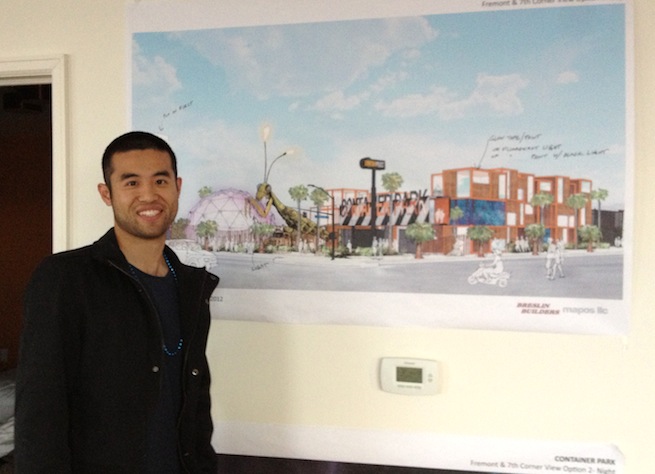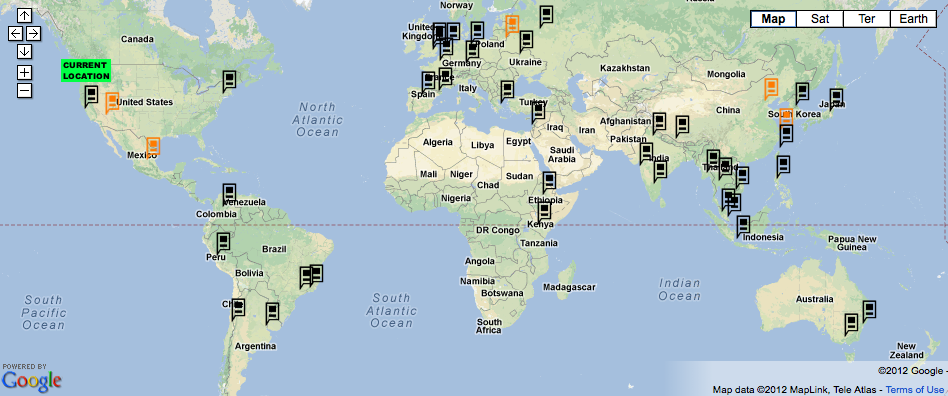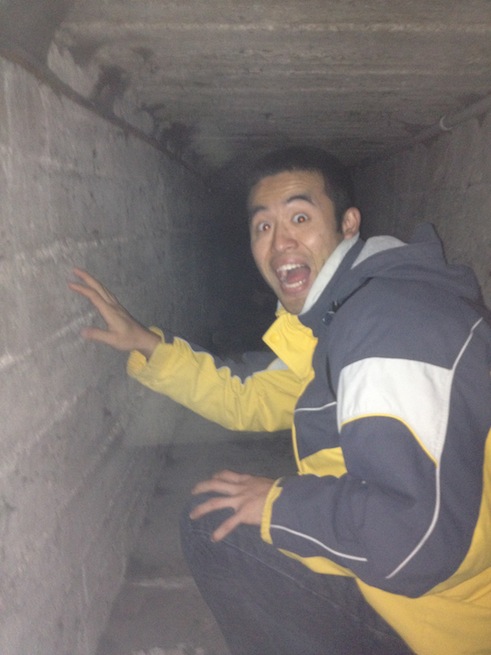Cardmunch founder Bowei Gai quit his cushy job with LinkedIn two months ago. He sold his business to LinkedIn in 2011, and is only now jumping ship to travel the world and find the next Silicon Valley, along with the help of Valley heavy-weights Dave McClure of 500 Startups and Brad Feld of the Foundry Group.
“I don’t know whether he’s the advance scout for us or we’re the advance scout for him,” said McClure in an interview with VentureBeat. “We’ve got our separately planned trips for Geeks on a Plane in India, Southeast Asia, and then we’re working on Africa. We’ll likely cross up.”
Gai’s new project, the World Startup Report, launched today — and it basically makes him the Jonny Quest of the startup world. Gai and a small team of Silicon Valley entrepreneurs will travel to 29 different countries in the next nine months. There, they will assess the startups, founders, “big players,” the challenges locals face, and the culture of that region to create a report on what it’s like to start a company there.
“The people traveling with me are some of the best in the industry,” said Gai in an interview with VentureBeat. “There’s no one else you can trust, no one else is doing this. I’m the person who’s willing to go out of my way and … do this.”
The reports will serve as a guideline to entrepreneurs all over the world, with information about what kinds of people there are there, investment opportunities, and how the culture perceives startups.
The project began after Gai took a trip to China and created the first of these reports. As a 500 Startups entrepreneur, he shared his report with the accelerator’s community where it became the top viewed Slideshare presentation within hours. It then disseminated through the Chinese media, commenting on its how accurate it portrayed the region. He received hundreds of emails from people wanting more information.
Gai isn’t the first to come up with an idea like this, however. Startup Genome also looks at different startup ecosystems around the world and publishes reports on them. Furthermore, it ranks the different countries and cities to see where startups are flourishing the most. When asked about Startup Genome, Gai explained that the World Startup Report is less focused on the numbers, and more focused on the cultural aspects.
He went on to note that he will not make money off of the endeavor and does not plan to charge for the reports.
“No, this is my Christmas gift back to the world,” said Gai. “I’ve been very fortunate in my past, I’ve gotten help from people all over the world … I sold a company to LinkedIn.”
“He has the recent startup exit founder honeymoon going on, so I think that’s great,” said McClure of the lack of business model. “For the first six to 12 months that’s great … [But] it’s more likely to be sustainable if there’s an economic model behind it.”
Each country will not only get time to sit down with Gai and explain how everything works in that culture, Gai will also give a talk to local entrepreneurs. McClure will be present at two to three of these talks live, and will otherwise be present through the web, or at very least through a pre-recorded interview with Gai.
They have a seemingly strong relationship. “I am Dave McClure. I am an extension of Dave McClure,” Gai told me. “I joke around with him nowadays because this is stuff he wants to do and he doesn’t have time to do. I’m literally helping him fulfill his dreams.”
When asked why we should trust Gai, McClure joked, “I have no idea. He looks sketchy.”
McClure explained that 500 Startups actually helped Gai put together “a lot of the folks he’s going to visit with,” and trust him because they’ve invested in him and he had a good exit to LinkedIn.
But when it comes to Silicon Valley, people are often protective. They believe Silicon Valley is unique, though other cities such as New York, London, or Skolkovo are trying to get in the game. There’s more opportunity than you might think, however. He spoke about Mexico, a country largely written off by technology enthusiasts.
Of all the Startup Weekend activity in the world, Mexico holds 10 percent of it, according to Gai. It is close to the United States, but is a Spanish-speaking country, where there is a lot of demand.
“With such a large push on the early stage companies and its proximity to the U.S. and Latin America, and then you throw on the 100 million population, you start to see … how they’d succeed.”
He went on to talk about Lithuania going through a time of peace, but having once been a center for research and development in the Soviet Union.
“The level of the tech talent is amazing. Put that with the first peace time in the country, that’s pretty interesting,” he said.
McClure, however, is putting his bets on a region a little closer to home, though he has hopes for Brazil and India:
“Strangely I think LA is going to be the next New York,” he said. “We’ve had slight flirtations with Southern California over the last ten years, but this time it feels for real.”
The reports will be written up and published within a week or two of each country visit, Gai hopes. He will also recruit people from that region to continue updating the reports as the startup environment changes.
Gai explained, “Every startup ecosystem has their own untold story. If you can understand that story, you can see how that community might succeed in the future.”
All images via Bowei Gai
VentureBeat's mission is to be a digital town square for technical decision-makers to gain knowledge about transformative enterprise technology and transact. Learn More



